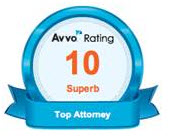Chapter 7 bankruptcy is generally for those people who are not business owners. In other words, it is for a personal bankruptcy claim, not a business bankruptcy. There are several things to keep in mind if you want to file this type of bankruptcy.
The first is that there may be a filing fee. The court charges $220 for a case filing fee. There is also a $39 miscellaneous administrative fee and a $15 trustee surcharge. These are usually due at the time that you file, but you may, with the court's approval, pay in installments. After all, you are filing for bankruptcy because you cannot afford your bills. The court may also have the fees waived if you are in the threshold amount of 150 percent over the poverty level in your income and no more. If you are required to pay these fees and you don't, the court may dismiss your filing altogether.
When you file with the bankruptcy court in your district, the following items will be required:
-- A statement of financial affairs
-- A schedule of executed contracts and unexpired leases. If you don't have these, don't worry. Your attorney will be able to guide you through this section.
-- Schedules of assets and liabilities. Be careful to list all assets, property, income, bills and debts that you have.
You may have to give the court your tax returns if they ask for them. Again, your lawyer can assist with this.
If you are filing for consumer debt alone, you may need to file a certificate of counseling and any plan that was developed while you were in credit counseling. Pay stubs for 60 days previous to filing are another set of documents that need to be included and a statement of your net monthly income will be needed as well if you are filing strictly for consumer debt, which most people are. Were you in college and received a loan? This information will be required as well.
It goes without saying that there is so much more needed than is listed above. Doing you research and calling in a qualified legal professional may be a good idea.
Source: FindLaw, "Chapter 7: how it works," accessed Jan. 22, 2016








No Comments
Leave a comment